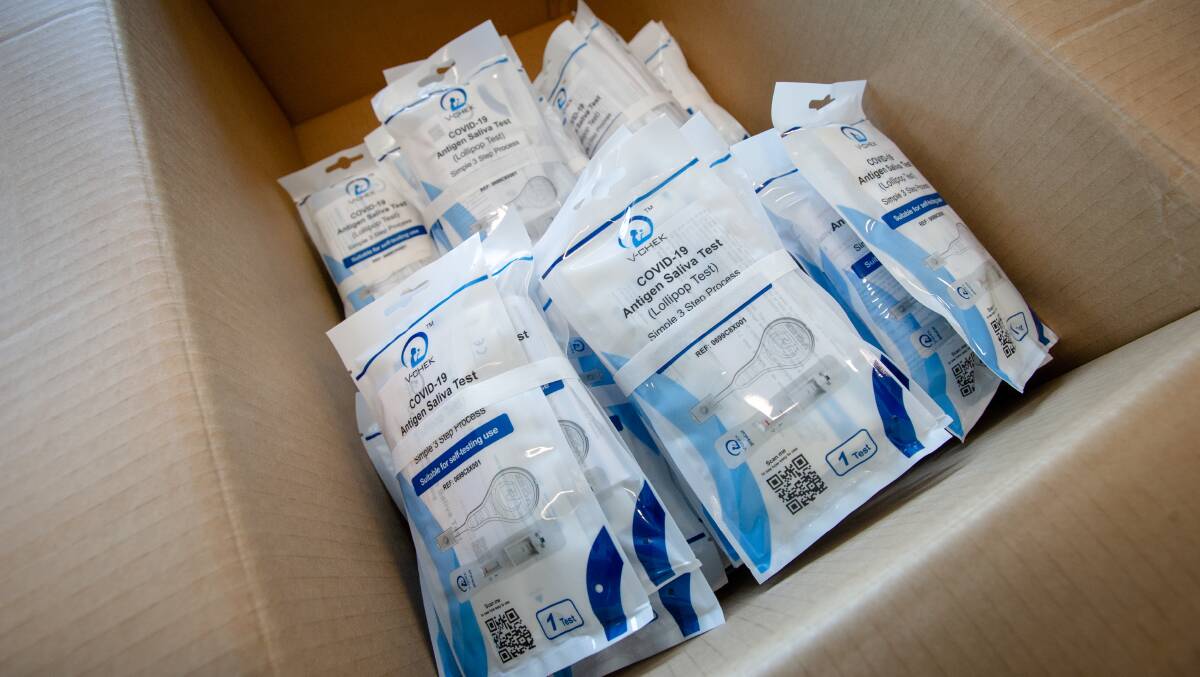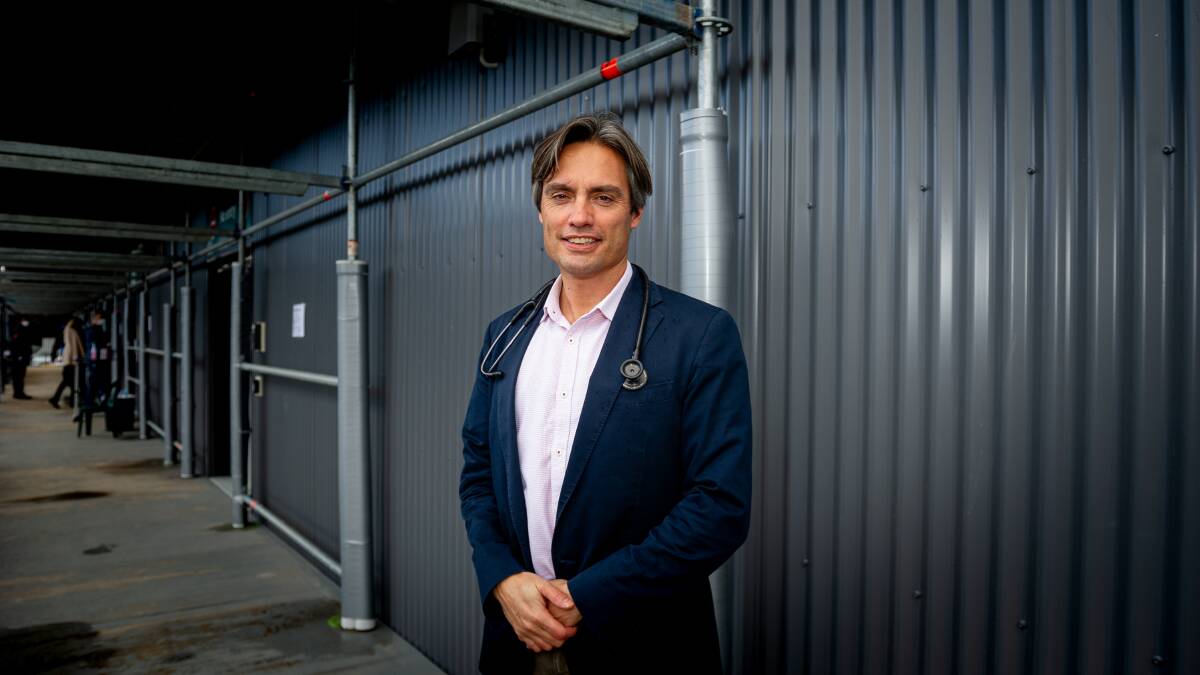The ACT's chief health officer has warned rapid antigen tests are not a perfect way to diagnose COVID-19, as Canberra parents report repeated false negative results.
The warning came as NSW moved to loosen some school health measures, but the ACT government stood firm in its school COVID restrictions for term one.
Dr Kerryn Coleman said rapid tests, which are being distributed to school students and staff for the first eight weeks of term, were more effective in giving an accurate overall picture when there was high caseload in the community.
"It's also about how you do the test. You need to have enough saliva on it ... I had one where the control bar didn't actually even go because I couldn't get it wet enough," Dr Coleman said.
"We know that RAT tests aren't the gold standard. The PCR test is the gold standard."

She said people who were symptomatic but got a negative RAT result should follow it up with a PCR test or another rapid test in 24 hours.
Canberra Health Services infectious disease physician Dr Nick Coatsworth said it was important to follow the instructions to the letter to get an accurate result.
"Say it says 'suck on the lollipop for 15 seconds' and you only do it for five, you might not be getting enough saliva on there to actually give a meaningful result," Dr Coatsworth said.
"Always follow the manufacturer's instructions, which come with the kit - and, as my family has seen in the past three weeks, they are all different."
Dr Coatsworth said it was also impossible for the different types of tests to be of the same sensitivity.
Manufacturers of the tests that are currently approved by the Therapeutic Goods Administration (TGA) have submitted their own study data on the performance of the kits.
The TGA has commissioned the Peter Doherty Institute to do independent testing on the kits to verify the manufacturers' claims.
Two common saliva-based tests distributed by ACT schools, V-Chek and Orawell, are listed as "very high sensitivity" by the TGA, however the independent testing hasn't been completed.

Dr Coatsworth said the next step would be to transition from twice-weekly testing of all students and staff to only giving rapid antigen tests to people who have symptoms.
"I think overall, the rapid antigen tests are going to continue to be useful for people with symptoms," he said.
"We will learn more about which of those [tests] are the most accurate, and we'll probably gravitate towards using those.
"But finally, I know it's really hard for some parents, but it's just such an important thing now to keep your kids at home when they've got respiratory viral symptoms."
Dr Coleman said school health guidelines were not changing this term, despite NSW schools relaxing cohorting requirements and visitor restrictions from Monday. Mask mandates will be lifted in NSW high schools on February 28, followed by NSW primary schools and early childhood centres on March 7.
An ACT government spokeswoman indicated the Education Directorate was considering changes to restrictions on camps and excursions in public schools.
"We'll have more to say on this in the coming days," the spokeswoman said.







